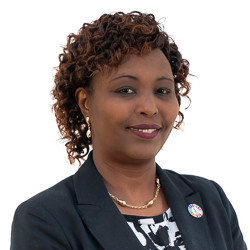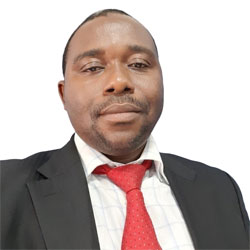Sierra Leone
The Context
Sierra Leone’s economy has proved relatively resilient in the face of two major external shocks: the Ebola epidemic of 2014, and a fall in the price of iron ore, a major export. After slumping sharply economic growth has resumed, supported by investments in mining, agriculture and fisheries.
Until the outbreak of Ebola in May 2014, Sierra Leone, a country of 7 million people on the West African seaboard, had one of the highest economic growth rates in the world. After emerging from an 11-year civil war in 2002, the country was rebuilding its governance and economy with the help of international donors.
Today, a youth unemployment or underemployment rate of 70 per cent, poor infrastructure, corruption, weak national cohesion and developing sound policies also remain big challenges.
Rural poverty is widespread in Sierra Leone. Nationwide three-quarters of people live in poverty, and a quarter cannot afford a basic diet. Poor housing and health, high infant and maternal mortality, high illiteracy, limited access to clean water and very low incomes are also commonplace, especially among woman-headed households, landless young people, and small-scale farmers. As a result productivity is low.
Improving agriculture is the priority for reducing poverty. It contributed 59 per cent of GDP in 2015 and employs 62 per cent of the labour force. Farmers need better access to land, credit, inputs and technologies. The absence of modern processing equipment limits opportunities for adding value and inadequate roads hinder farmers’ access to markets.
The Strategy
IFAD is the largest and most active donor in Sierra Leone's agricultural sector.
IFAD supported the government in its fight against the Ebola outbreak and during the aftermath. Now that the epidemic is over, IFAD continues to contribute to the country’s recovery, particularly to establish food security, which is vital to health.
Key activities include:
- supporting agriculture, by– improving smallholder farmers’ access to irrigation, technical skills and markets;
- supporting rural finance, thereby providing poor rural people with access to reliable and sustainable financial services for savings, credit, transfers and remittances; and
- supporting local development, by increasing participation by poor rural people in the management of local decentralized institutions.
Country Facts
About 26 per cent of people in Sierra Leone are food-insecure and cannot afford a basic diet, while 75 per cent live in poverty.
Only five per cent of farmers are believed to have access to financial services.
Since 1980, IFAD has invested over US$158 million in eight projects and programmes in Sierra Leone, benefiting 513,500 households.

